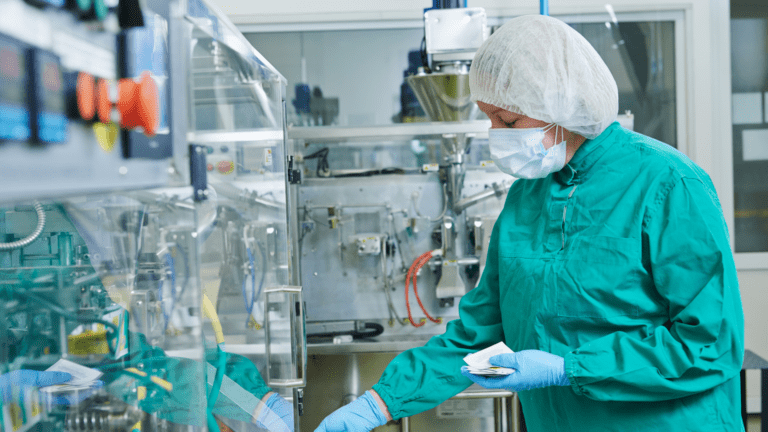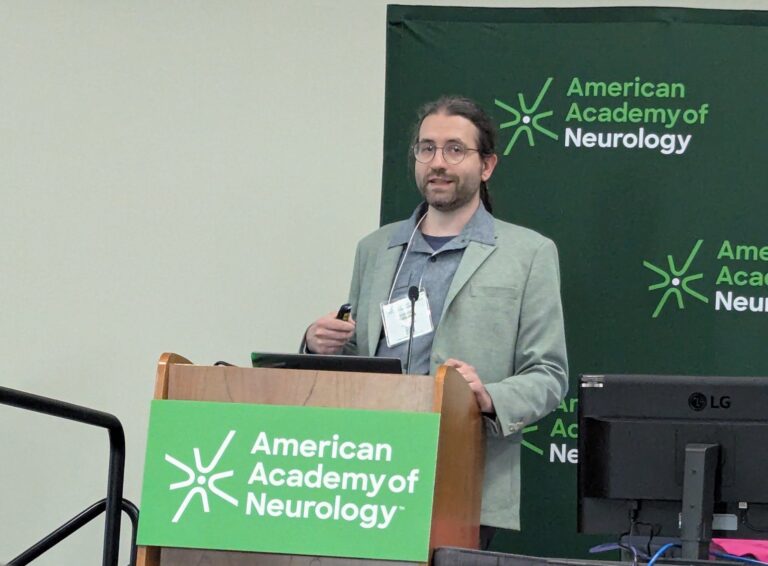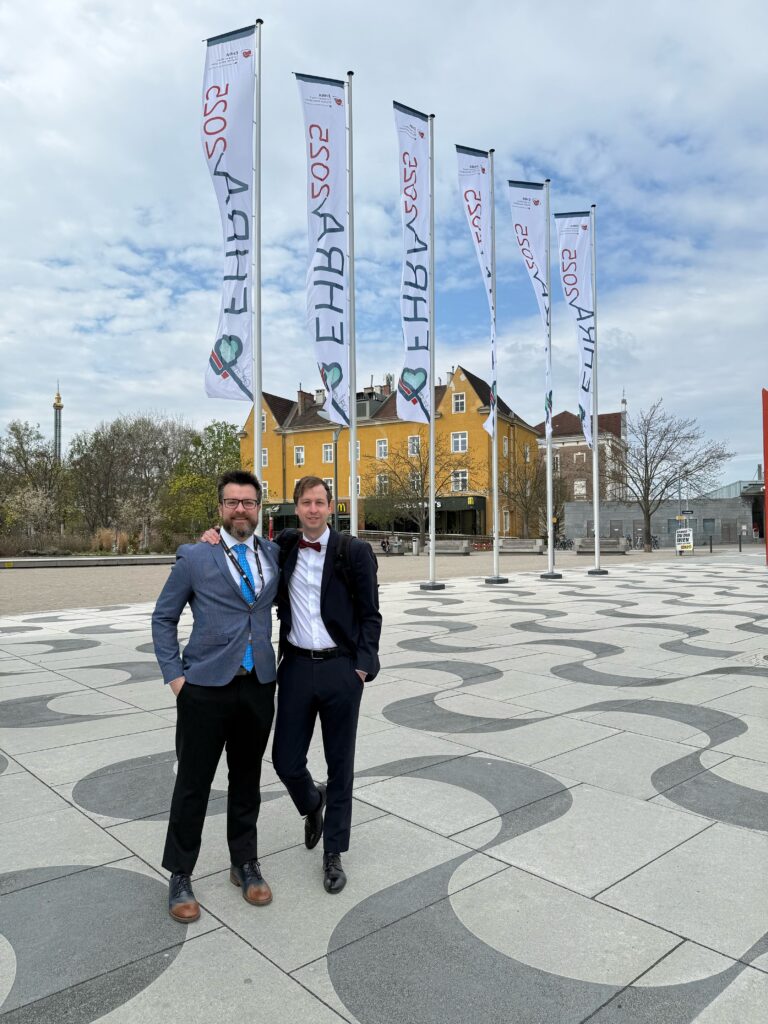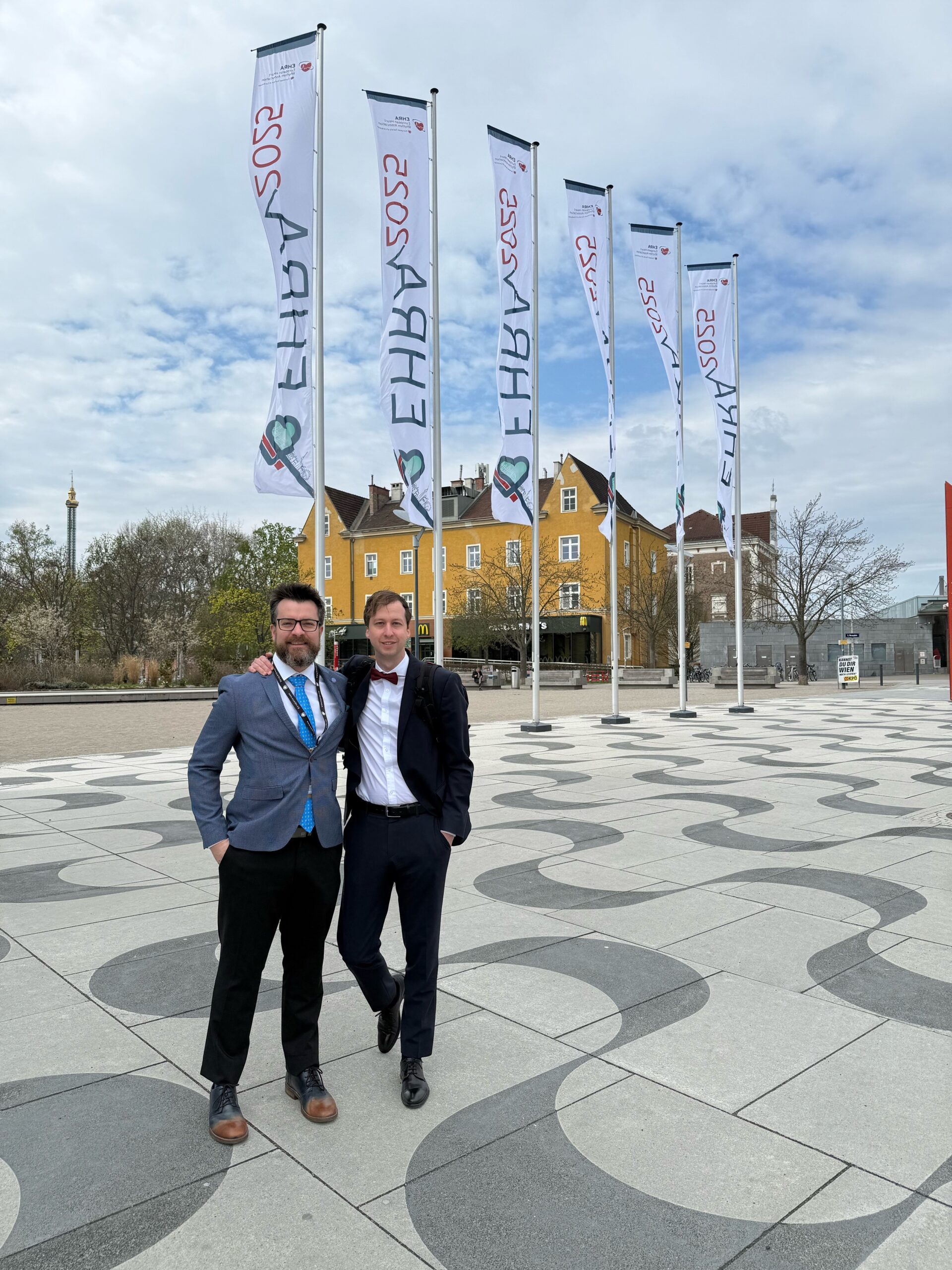The PROTECT Lab, a collaboration between PHRI, McMaster University, and Hamilton Health Sciences (HHS), recently celebrated the opening of its new facility at HHS Juravinski Hospital and Cancer Centre (JHCC). This lab focuses on virtual care using remote automated monitoring (VC-RAM) to help patients recover at home after leaving the hospital. The opening event included a ribbon-cutting ceremony and a tour, attended by hospital and university leaders, community members, and funders.
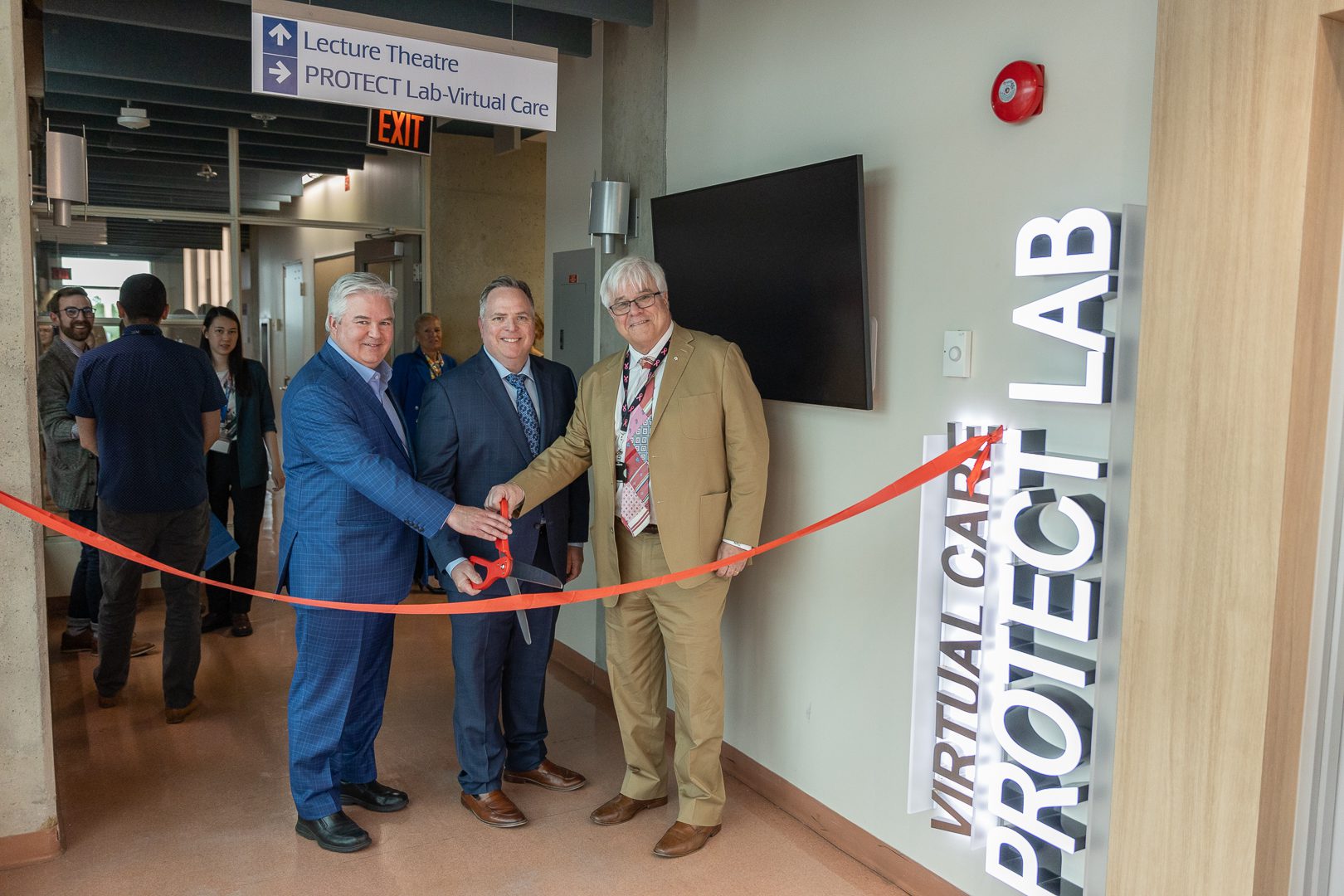
L to R: Devereaux, McGillion, and Levine at the ribbon-cutting ceremony. Photo courtesy of HHS.
Leading the lab are PHRI Scientist Michael McGillion, Senior Scientist PJ Devereaux, and Mark Levine from Hamilton Health Sciences. They secured $1.6 million in funding from the Canada Foundation for Innovation and the Province of Ontario, with the lab space donated by Hamilton Health Sciences.
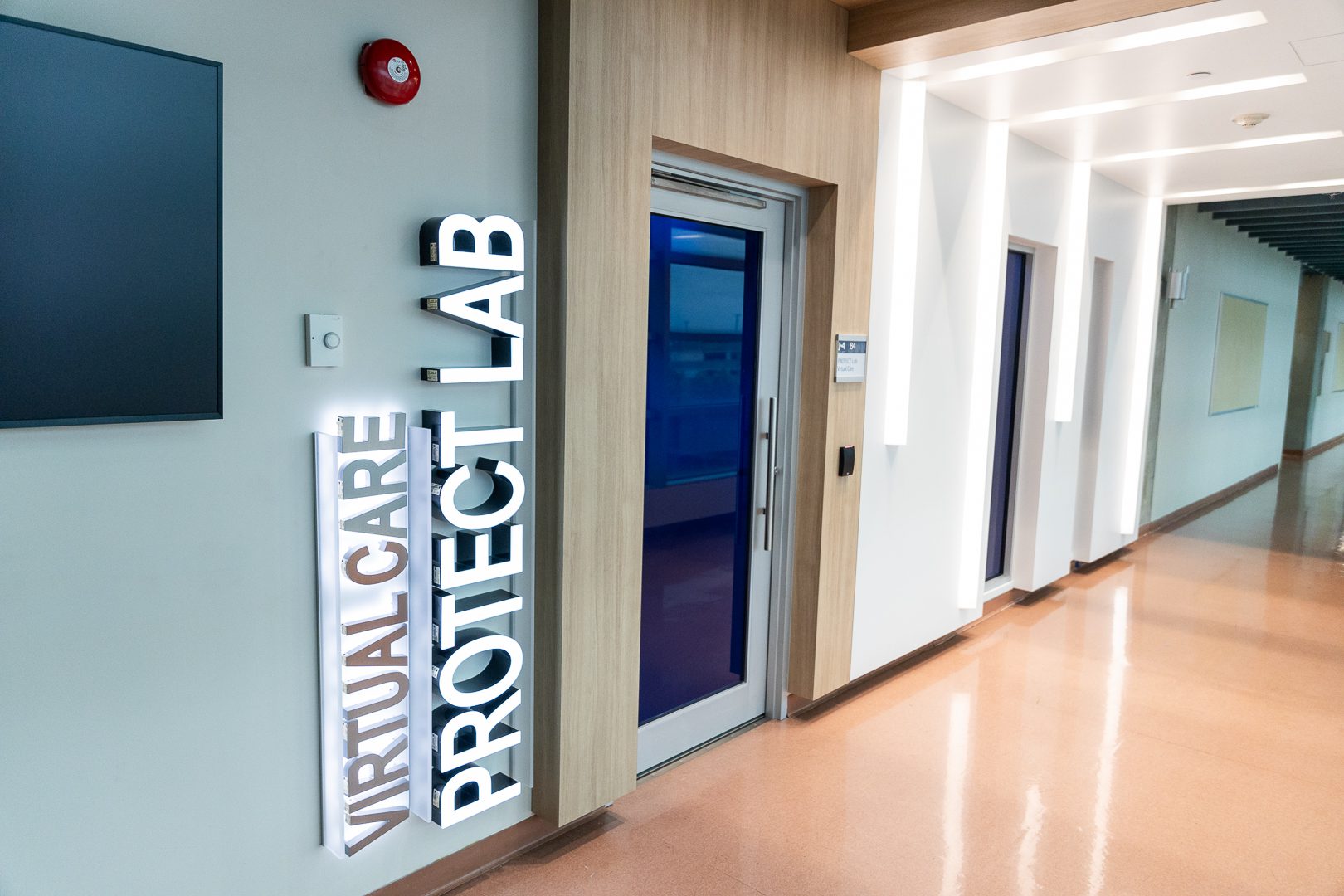 The lab is set up with different sections for virtual care and RAM infrastructure. This setup allows for real-time monitoring and data capture across multiple studies simultaneously. It provides insights at both group (study populations) and individual levels, facilitates direct communication between patients and their healthcare team, and ensures patient privacy.
The lab is set up with different sections for virtual care and RAM infrastructure. This setup allows for real-time monitoring and data capture across multiple studies simultaneously. It provides insights at both group (study populations) and individual levels, facilitates direct communication between patients and their healthcare team, and ensures patient privacy.
The new space features six monitoring stations staffed by nurses, who have a clear view of a central status display grid providing real-time data on patients being monitored from home. Work areas have acoustically treated surfaces for noise control, so team members and patients can communicate clearly. Other features include dedicated space where remote monitoring equipment returned by research patients can be cleaned, recharged, and repackaged for future use.
Patients use tablets and monitoring devices provided by the hospital to track their vital signs at home. This information is sent to nurses at the PROTECT Lab, where they can also communicate with patients through the tablet.
Since starting remote home monitoring, thousands of HHS patients, especially those recovering from surgery, have participated in studies and given positive feedback. Patients prefer recovering at home and have seen better recovery outcomes, reducing the need for emergency room visits.
At PHRI, Devereaux and McGillion have worked together for years on virtual care research, focusing on perioperative care such as PVC-RAM and SMArTVIEW. Devereaux leads the perioperative and surgery research group at PHRI and holds prestigious positions at McMaster University, including a Tier 1 Canadian Research Chair in Perioperative Medicine and the Yusuf Chair in Cardiology.
McGillion is an Associate Professor at McMaster’s School of Nursing, serving as the Heart and Stroke Foundation/Michael G. DeGroote Endowed Chair in Cardiovascular Nursing Research. He also holds the title of International Visiting Professor of Digital Health at Coventry University in the UK and was McMaster’s first University Scholar from the School of Nursing in 2019.
The PROTECT Lab is part of a broader initiative called the Virtual Care and Remote Automated Monitoring Technology Research (VICTOR) program. This program involves collaboration between PHRI, CREATE (an advanced IT group within HHS), and the Escarpment Cancer Research Institute in Hamilton.

